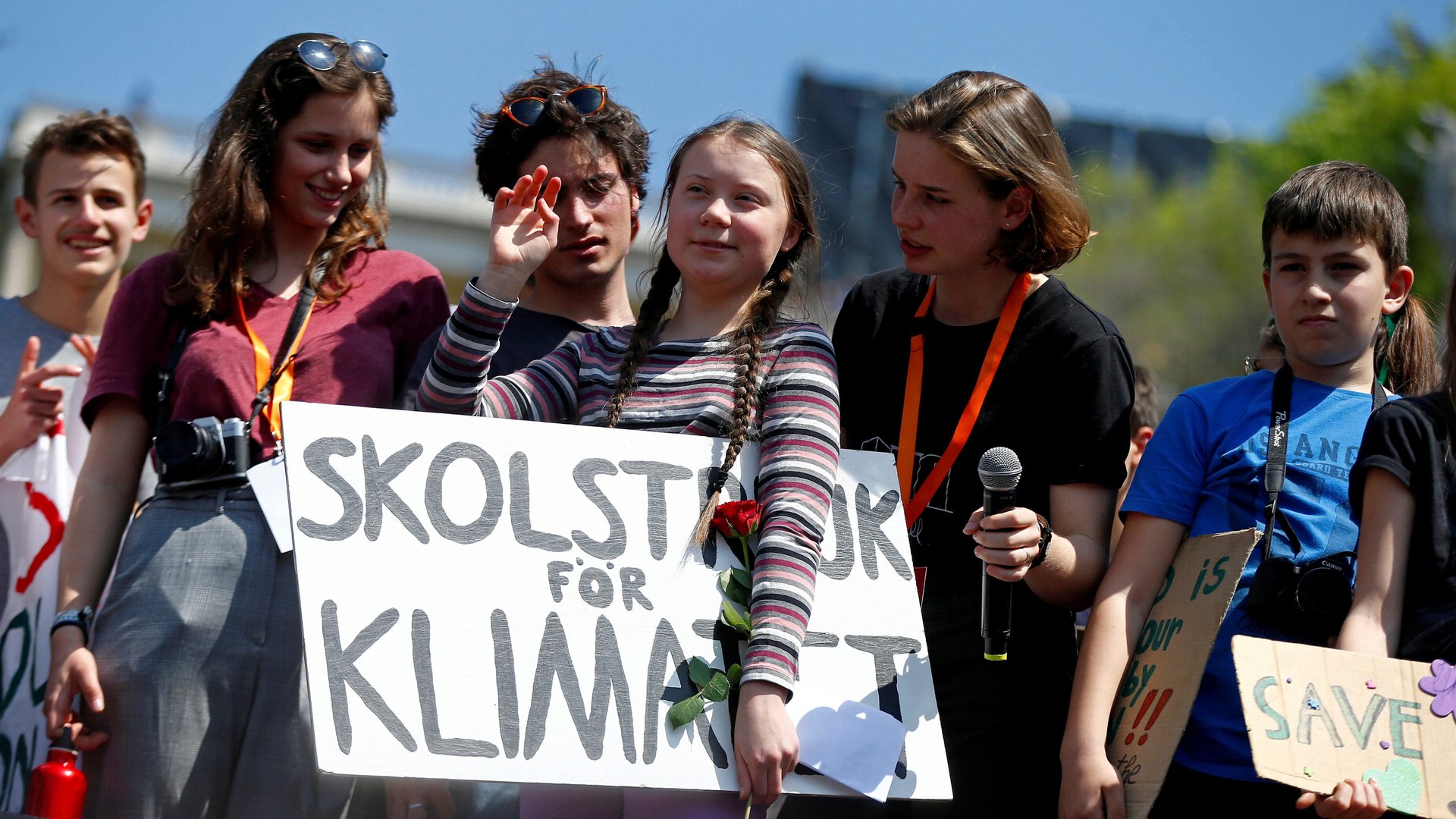Greta Thunberg’s chat with AOC is a powerful reminder that hope still works
It’s easy to feel hopeless in the face of grim environmental news. After all, an international body of scientists recently said there are only a dozen years left to avoid a climate change crisis. At this week’s G20 summit, nations agreed to implement the 2015 Paris agreement, but the US, the world’s largest economy, refused to do so. Last week, EU leaders failed to reach an agreement to strengthen the bloc’s climate targets to net zero carbon emissions by 2050, and currently the continent is in a heatwave that’s registering record high temperatures.


It’s easy to feel hopeless in the face of grim environmental news. After all, an international body of scientists recently said there are only a dozen years left to avoid a climate change crisis. At this week’s G20 summit, nations agreed to implement the 2015 Paris agreement, but the US, the world’s largest economy, refused to do so. Last week, EU leaders failed to reach an agreement to strengthen the bloc’s climate targets to net zero carbon emissions by 2050, and currently the continent is in a heatwave that’s registering record high temperatures.
In these dire times, the Guardian brought together two of the world’s most visible climate activists, 16-year-old Swede Greta Thunberg and 29-year-old US congresswoman Alexandria Ocasio-Cortez, for their first conversation, conducted in a video call and published today. One of the most compelling sections of their talk is a reminder that there’s still a lot to be hopeful about, and that in itself can be transformed into a political force.
Ocasio-Cortez somewhat lightheartedly asks Thunberg, “Why aren’t you so filled with despair that you’re staying on your couch every day, and just waiting for the apocalypse?” The teen replies that she had been depressed by the severity of climate change before she started the school strikes that have been taken up by students internationally. She continues:
The school-striking children, when I see them—that is very hopeful. And also the fact that people are very unaware of the climate crisis. I mean, people aren’t continuing like this and not doing anything because they are evil, or because they don’t want to. We aren’t destroying the biosphere because we are selfish. We are doing it simply because we are unaware. I think that is very hopeful, because once we know, once we realize, then we change, then we act.
The US lawmaker responds that she’d also gone from depression to hope. She says that she felt “powerless” when she was working in a restaurant every day and her family was struggling while there were an “enormous number of societal structures that are designed in the US to keep the working class poor, and to keep the rich, richer.” But joining in the Standing Rock protests in North Dakota (against an oil pipeline) made her feel powerful. She adds:
Even though we had nothing, materially—just the act of standing up to some of the most powerful corporations in the world…From there I learned that hope is not something that you have. Hope is something that you create, with your actions. Hope is something you have to manifest into the world, and once one person has hope, it can be contagious. Other people start acting in a way that has more hope.
Amid rising concerns about other global issues, including nationalism and income and wealth inequality, Thunberg follows with a piece of advice that applies to more causes than protecting the climate. She says:
I know so many people who feel hopeless, and they ask me, “What should I do?” And I say: “Act. Do something.” Because that is the best medicine against sadness and depression. I remember the first day I was school-striking outside the Swedish parliament, I felt so alone, because everyone went straight past, no one even looked at me. But at the same time I was hopeful.